Speakers
Keynote speaker
Constantinos Daskalakis  is a professor of Computer Science and Electrical Engineering at MIT, a member of CSAIL, and affiliated with LIDS and ORC. He holds a diploma in electrical and computer engineering from the National Technical University of Athens, and a Ph.D. in electrical engineering and computer sciences from UC-Berkeley. His research interests lie in theoretical computer science and its interface with economics, probability, learning and statistics. He has been honored with the 2007 Microsoft Graduate Research Fellowship, the 2008 ACM Doctoral Dissertation Award, the Game Theory and Computer Science (Kalai) Prize from the Game Theory Society, the 2010 Sloan Fellowship in Computer Science, the 2011 SIAM Outstanding Paper Prize, the 2011 Ruth and Joel Spira Award for Distinguished Teaching, the 2012 Microsoft Research Faculty Fellowship, the 2015 Research and Development Award by the Vatican Giuseppe Sciacca Foundation, the 2017 Google Faculty Research Award and the 2018 Simons Investigator Award. His most recent accomplishments include the 2018 IMU Abacus Medal (formerly Rolf Nevanlinna Prize), and the 2018 ACM Grace Murray Hopper Award. He is also a recipient of Best Paper awards at the ACM Conference on Economics and Computation in 2006 and in 2013.
is a professor of Computer Science and Electrical Engineering at MIT, a member of CSAIL, and affiliated with LIDS and ORC. He holds a diploma in electrical and computer engineering from the National Technical University of Athens, and a Ph.D. in electrical engineering and computer sciences from UC-Berkeley. His research interests lie in theoretical computer science and its interface with economics, probability, learning and statistics. He has been honored with the 2007 Microsoft Graduate Research Fellowship, the 2008 ACM Doctoral Dissertation Award, the Game Theory and Computer Science (Kalai) Prize from the Game Theory Society, the 2010 Sloan Fellowship in Computer Science, the 2011 SIAM Outstanding Paper Prize, the 2011 Ruth and Joel Spira Award for Distinguished Teaching, the 2012 Microsoft Research Faculty Fellowship, the 2015 Research and Development Award by the Vatican Giuseppe Sciacca Foundation, the 2017 Google Faculty Research Award and the 2018 Simons Investigator Award. His most recent accomplishments include the 2018 IMU Abacus Medal (formerly Rolf Nevanlinna Prize), and the 2018 ACM Grace Murray Hopper Award. He is also a recipient of Best Paper awards at the ACM Conference on Economics and Computation in 2006 and in 2013.

Lecturers
Ricardo Baeza-Yates
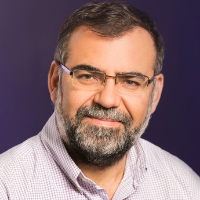 Ricardo Baeza-Yates is currently CTO of NTENT, a search technology company based in Carlsbad, California, since June 2016; as well as Director of Graduate Data Science Programs (part-time) of Northeastern University, Silicon Valley campus, since January 2018. Previously, he was VP of Research at Yahoo Labs, based in Barcelona, Spain, and later in Sunnyvale, California, from January 2006 to February 2016. Between 2008 and 2012 he also supervised Yahoo Labs Haifa and between 2012 and 2014 Yahoo Labs London. Until 2005 he was the director of the Center for Web Research at the Department of Computer Science of the Engineering School of the University of Chile; and ICREA Professor and founder of the Web Science and Social Computing Research Group (formerly Web Research Group) at the Dept. of Information and Communication Technologies of Universitat Pompeu Fabra in Barcelona, Spain. He maintains ties with both mentioned universities as a part-time professor. Finally, he is also an adjunct professor at the CS department of the University of Waterloo, Canada.
Ricardo Baeza-Yates is currently CTO of NTENT, a search technology company based in Carlsbad, California, since June 2016; as well as Director of Graduate Data Science Programs (part-time) of Northeastern University, Silicon Valley campus, since January 2018. Previously, he was VP of Research at Yahoo Labs, based in Barcelona, Spain, and later in Sunnyvale, California, from January 2006 to February 2016. Between 2008 and 2012 he also supervised Yahoo Labs Haifa and between 2012 and 2014 Yahoo Labs London. Until 2005 he was the director of the Center for Web Research at the Department of Computer Science of the Engineering School of the University of Chile; and ICREA Professor and founder of the Web Science and Social Computing Research Group (formerly Web Research Group) at the Dept. of Information and Communication Technologies of Universitat Pompeu Fabra in Barcelona, Spain. He maintains ties with both mentioned universities as a part-time professor. Finally, he is also an adjunct professor at the CS department of the University of Waterloo, Canada.
His research interests includes algorithms and data structures, information retrieval, web search and data mining, and data science and visualization.
He is ACM Fellow and IEEE Fellow.

Jiawei Han
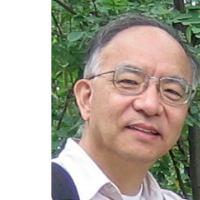 Jiawei Han is Abel Bliss Professor in the Department of Computer Science at the University of Illinois. He received his Ph.D. in Computer Sciences at University of Wisconsin in 1985. He worked as assistant professor in Northwestern University in 1986-1987 and as assistant, associate, full and university chair professor in Simon Fraser University in 1987-2001 before joining UIUC in 2001. He has been researching into data mining, information network analysis, and database systems, and their various applications, with over 600 publications. He served as the founding Editor-in-Chief of ACM Transactions on Knowledge Discovery from Data (TKDD) (2007-2012). Jiawei has received ACM SIGKDD Innovation Award (2004), IEEE Computer Society Technical Achievement Award (2005), IEEE Computer Society W. Wallace McDowell Award (2009), Daniel C. Drucker Eminent Faculty Award at UIUC (2011), and Excellence in Graduate and Professional Teaching Award at UIUC (2012). He is a Fellow of ACM and a Fellow of IEEE. He has been serving as the Director of Information Network Academic Research Center (INARC) supported by the Network Science-Collaborative Technology Alliance (NS-CTA) program of U.S. Army Research Lab since 2009. His co-authored textbook “Data Mining: Concepts and Techniques” (Morgan Kaufmann) has been adopted popularly as a textbook worldwide.
Jiawei Han is Abel Bliss Professor in the Department of Computer Science at the University of Illinois. He received his Ph.D. in Computer Sciences at University of Wisconsin in 1985. He worked as assistant professor in Northwestern University in 1986-1987 and as assistant, associate, full and university chair professor in Simon Fraser University in 1987-2001 before joining UIUC in 2001. He has been researching into data mining, information network analysis, and database systems, and their various applications, with over 600 publications. He served as the founding Editor-in-Chief of ACM Transactions on Knowledge Discovery from Data (TKDD) (2007-2012). Jiawei has received ACM SIGKDD Innovation Award (2004), IEEE Computer Society Technical Achievement Award (2005), IEEE Computer Society W. Wallace McDowell Award (2009), Daniel C. Drucker Eminent Faculty Award at UIUC (2011), and Excellence in Graduate and Professional Teaching Award at UIUC (2012). He is a Fellow of ACM and a Fellow of IEEE. He has been serving as the Director of Information Network Academic Research Center (INARC) supported by the Network Science-Collaborative Technology Alliance (NS-CTA) program of U.S. Army Research Lab since 2009. His co-authored textbook “Data Mining: Concepts and Techniques” (Morgan Kaufmann) has been adopted popularly as a textbook worldwide.

Bill Howe
Bill Howe 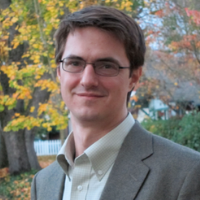 (Washington) is an Associate Professor in the Information School, Adjunct Associate Professor in Computer Science & Engineering, University of Washington. He leads an interdisciplinary group in Responsible Data Science with emphasis on urban applications. He was the Founding Associate Director in the UW eScience Institute; He continues to serve on the steering committee as a Senior Data Science Fellow. He is a co-founder of Urban@UW, and he leads UW’s participation in the MetroLab Network and the Cascadia Urban Analytics Cooperative. He created a first MOOC on Data Science through Coursera, and he led the creation of the UW Data Science Masters Degree, serving as its inaugural Program Director and Faculty Chair. He serves on the Steering Committee of the Center for Statistics in the Social Sciences.
(Washington) is an Associate Professor in the Information School, Adjunct Associate Professor in Computer Science & Engineering, University of Washington. He leads an interdisciplinary group in Responsible Data Science with emphasis on urban applications. He was the Founding Associate Director in the UW eScience Institute; He continues to serve on the steering committee as a Senior Data Science Fellow. He is a co-founder of Urban@UW, and he leads UW’s participation in the MetroLab Network and the Cascadia Urban Analytics Cooperative. He created a first MOOC on Data Science through Coursera, and he led the creation of the UW Data Science Masters Degree, serving as its inaugural Program Director and Faculty Chair. He serves on the Steering Committee of the Center for Statistics in the Social Sciences.
His group’s research aims to make the techniques and technologies of data science dramatically more accessible and reliable, particularly at scale. Its methods are rooted in database models and languages, though we sometimes work in machine learning, visualization, HCI, and high-performance computing. It is an applied, systems-oriented group, frequently sourcing projects through collaborations in the physical, life, and social sciences.

Natasa Milic-Frayling
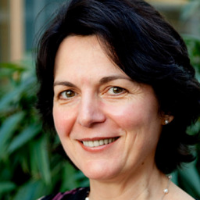 Natasa Milic-Frayling (Nottingham) is Professor and Chair of Data Science at the School of Computer Science University of Nottingham. She serves as a Chair of the Technology and Research Workgroup of the UNESCO PERSIST Programme and is a Founder of Intact Digital Ltd.
Natasa Milic-Frayling (Nottingham) is Professor and Chair of Data Science at the School of Computer Science University of Nottingham. She serves as a Chair of the Technology and Research Workgroup of the UNESCO PERSIST Programme and is a Founder of Intact Digital Ltd.
Natasa has a long track record in computer science research, focussed on new paradigms in digital content management and analysis. Prior to joining the University of Nottingham in 2015, she was a Principal Researcher at Microsoft Research (MSR) in Cambridge, UK since 1998. During her tenure at MSR, she led a cross-disciplinary research team working on Integrated Systems and served as a Director of the Research Partnership Programme.
Natasa is passionate about the impact of technology in personal and social computing. She promotes a dialogue between the ICT industry, consumers, and policy makers on critical issues that arise from the adoption of digital technologies. Her current focus is on digital obsolescence and privacy respecting design of computing systems and applications. She is actively working with the UNESCO PERSIST Programme as a Chair of the Research and Technology Workgroup, focussed on the preservation of World’s Digital Heritage. She is promoting new practices and policies in the life-cycle management of digital technologies and founded Intact Digital Ltd to bring to market economically sustainable methods and solutions to digital obsolescence.
In her research, Natasa is working on effective modelling techniques that connect data-driven approaches with world-knowledge of processes and data provenance. In her approaches, she take into account ethical considerations of computing profession and economic ecosystem within which the profession operates.
On these challenges issues, Natasa collaborates with a broader community of scholars and practitioners. She is a member of the ACM Europe Council and Chair of ACM Women Europe.
Natasa received her undergraduate degree in Applied Mathematics from University of Zagreb, Croatia in 1984 and a Doctorate in Applied Mathematics from Carnegie Mellon University, Pittsburgh in 1989.

Evi Pitoura
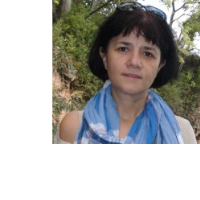 Evaggelia Pitoura is a Professor at the University of Ioannina, Greece where she also leads the Distributed Management of Data Laboratory. She received a BSc degree from the University of Patras, Greece, and an MS and PhD degree from Purdue University, USA. Her research interests are in the area of data management systems with a recent emphasis on social networks, temporal graphs and responsible data management. Her publications include more than 150 articles in international journals (including TODS, TKDE, TPDS, PVLDB) and conferences (including SIGMOD, ICDE, EDBT, CIKM, WWW) and a highly-cited book on mobile computing. Her research has been funded by the EC and national sources. She has served or serves on the editorial board of ACM TODS, VLDBJ, TKDE, DAPD and as a group leader, senior PC member, or co-chair of many international conferences (including PC chair of EDBT 2016 and co-chair of ICDE 2012). She is the recipient of three best paper awards (ICDE 1999, DBSocial 2013, PVLDB 2013), a Marie Currie Fellowship (2009) and two Recognition of Service Awards from ACM.
Evaggelia Pitoura is a Professor at the University of Ioannina, Greece where she also leads the Distributed Management of Data Laboratory. She received a BSc degree from the University of Patras, Greece, and an MS and PhD degree from Purdue University, USA. Her research interests are in the area of data management systems with a recent emphasis on social networks, temporal graphs and responsible data management. Her publications include more than 150 articles in international journals (including TODS, TKDE, TPDS, PVLDB) and conferences (including SIGMOD, ICDE, EDBT, CIKM, WWW) and a highly-cited book on mobile computing. Her research has been funded by the EC and national sources. She has served or serves on the editorial board of ACM TODS, VLDBJ, TKDE, DAPD and as a group leader, senior PC member, or co-chair of many international conferences (including PC chair of EDBT 2016 and co-chair of ICDE 2012). She is the recipient of three best paper awards (ICDE 1999, DBSocial 2013, PVLDB 2013), a Marie Currie Fellowship (2009) and two Recognition of Service Awards from ACM.

J.J. van Wijk
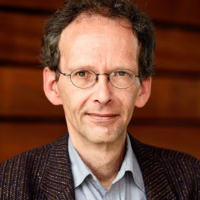 Jack (Jarke J.) van Wijk is full professor in visualization at the Department of Mathematics and Computer Science of Eindhoven University of Technology (TU/e).
Jack (Jarke J.) van Wijk is full professor in visualization at the Department of Mathematics and Computer Science of Eindhoven University of Technology (TU/e).
He received a MSc degree in industrial design engineering in 1982 and a PhD degree in computer science in 1986, both from Delft University of Technology, both with honors. After a short period in the software industry, he has worked for ten years at the Netherlands Energy Research Foundation ECN. He joined Eindhoven University of Technology in 1998, where he became a full professor of visualization in 2001. His main research interests are information visualization, visual analytics, and mathematical visualization. He is cofounder and VP Scientific Affairs of MagnaView BV (now ProcessGold BV), another start-up from his group is SynerScope BV. He is scientific director of the Professional Doctorate in Engeneering (PDEng) program on Data Science, and scientific director of the Data Science Center Eindhoven (DSC/e).
He has (co-)authored more than 150 papers in visualization and computer graphics. He has been paper cochair for IEEE Visualization (2003, 2004), IEEE InfoVis (2006, 2007), IEEE VAST 2009, IEEE PacificVis 2010 and EG/IEEE EuroVis (2011, 2016, 2017). He received the IEEE Visualization Technical Achievement Award in 2007 for his work on flow visualization; the Eurographics 2013 Outstanding Technical Contributions Award; best paper awards at IEEE InfoVis 2003, IEEE Visualization 2005, IEEE PacificVis 2013, IEEE InfoVis 2014; IEEE VAST 2015, and the 2009 Henry Johns Award of The Cartographic Journal. He was keynote, capstone, or invited speaker at PacificVis 2009, EuroVAST 2010, GD 2011, VMV 2011, i-KNOW 2011, Bridges 2013, IEEE VISSOFT 2013, IEEE VIS 2013 (video), VAHC 2015, ACM Multimedia 2016, VISIGRAPP 2017, and Eurographics 2018.

ACM Speakers
Georgia Koutrika
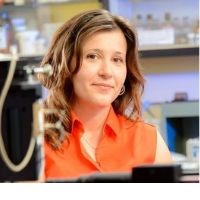 Georgia Koutrika is a Research Director at “Athena” Research Center. Her research is in the broader area of big data and in the intersection of databases, information retrieval, machine learning, and data mining, and includes:
Georgia Koutrika is a Research Director at “Athena” Research Center. Her research is in the broader area of big data and in the intersection of databases, information retrieval, machine learning, and data mining, and includes:
- personalization and recommendation systems,
- user profiling and user analytics,
- large-scale information extraction, entity resolution and information integration,
- query and data exploration paradigms, including keyword search and natural language interfaces.
Her work has been incorporated in many commercial products. She holds 8 issued patents and has filed 18 patent applications in the US and worldwide. She has authored and co-authored more than 80 research papers in peer- reviewed conferences (including ACM SIGMOD, PVLDB, and IEEE ICDE) and journals (including ACM TODS and IEEE TKDE). An IEEE Senior member and ACM member, Georgia is an ACM SIGMOD Associate Information Director and editor of ACM SIGMOD Blog. She has served as Demo PC co-chair for ACM SIGMOD 2018, General Co-Chair for ACM SIGMOD 2016, Industrial Track PC Chair for EDBT 2016, and Workshop and Tutorial Co-Chair for IEEE ICDE 2016. She is an Associate Editor for VLDB 2019. She serves in the program committees of top-tier conferences, and she has organized several focused workshops in databases, personalization and data exploration. She is a Distinguished Speaker of the ACM.

Maria Roussou
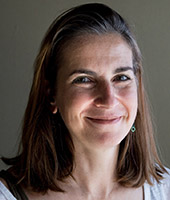 Dr. Maria Roussou is an Assistant Professor in Interactive Systems (i.e. Human-Computer Interaction, Virtual Reality, Videogames) at the Department of Informatics & Telecommunications, National and Kapodistrian University of Athens.
Dr. Maria Roussou is an Assistant Professor in Interactive Systems (i.e. Human-Computer Interaction, Virtual Reality, Videogames) at the Department of Informatics & Telecommunications, National and Kapodistrian University of Athens.
She holds a PhD in Computer Science (with a research focus on Virtual Reality and Human-Computer Interaction) from the University of London (UCL), a Master in Fine Arts (MFA) degree in Electronic Visualization from the School of Art and Design, University of Illinois at Chicago, a Master of Science (M.Sc) in Electrical Engineering & Computer Science from the same university, and an undergraduate degree in Applied Informatics from the Athens University of Economics and Business. In 2003 she founded and co-directed (until 2016) makebelieve, an experience design and consulting company. Previously, she established (in 1998) and directed (until 2003) the Virtual Reality Department at the Foundation of the Hellenic World (FHW), a cultural heritage institution based in Athens, Greece.
Her recent research projects include the EMOTIVE.project in which she leads the User Research Group, the CHESS Project (02/2011-04/2014), in which she led the User-Centred Design & Scenarios work and the MAGELLAN Project (2013 – 2016), in which she worked on location-based mobile application evaluation.
She is an active member of a number of professional organizations, such as ACM (also as Chair of the Greek ACM SIGCHI Professional Chapter since 2011, and Vice Chair of the Greek ACM-W Chapter since 2018), IEEE, and ICOM. Maria is the recipient of the 2013 Tartessos Award for her contribution to Digital Heritage and Virtual Archaeology.
Meet the Speakers
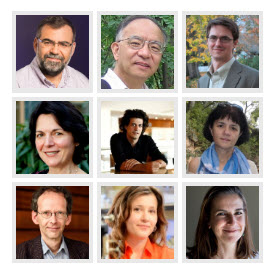
Contact Us
Reach out to us and we will respond as soon as possible.
You can send us an email to [email protected].
